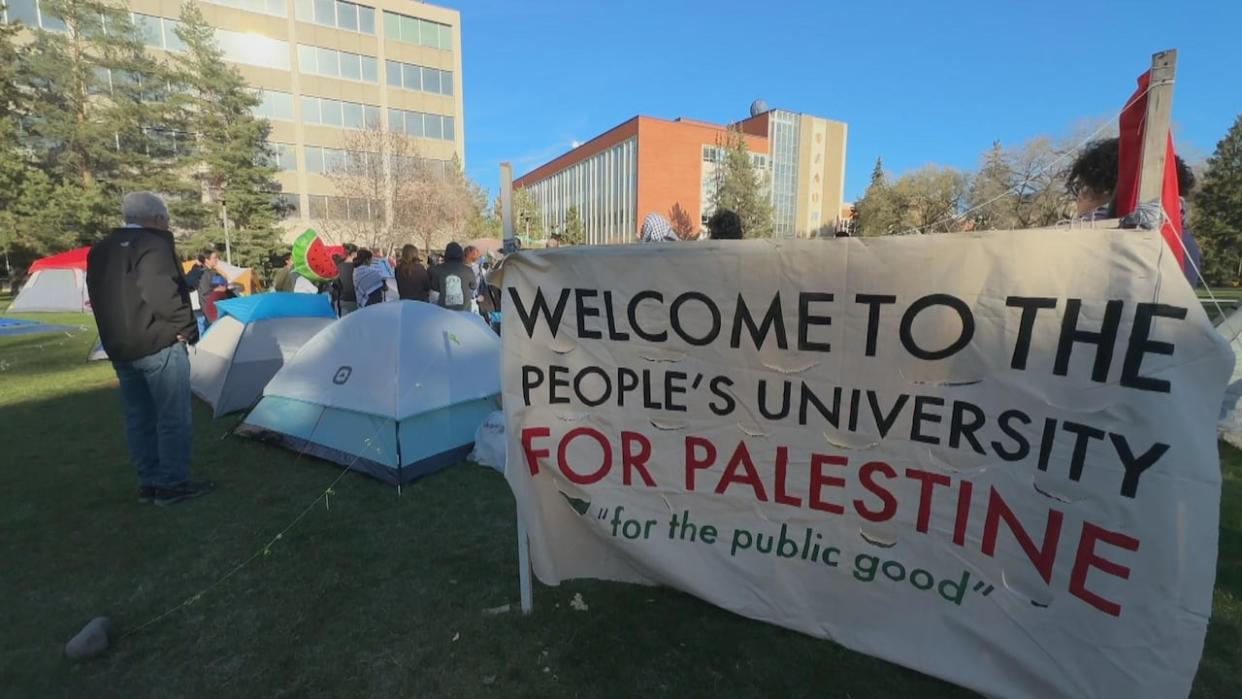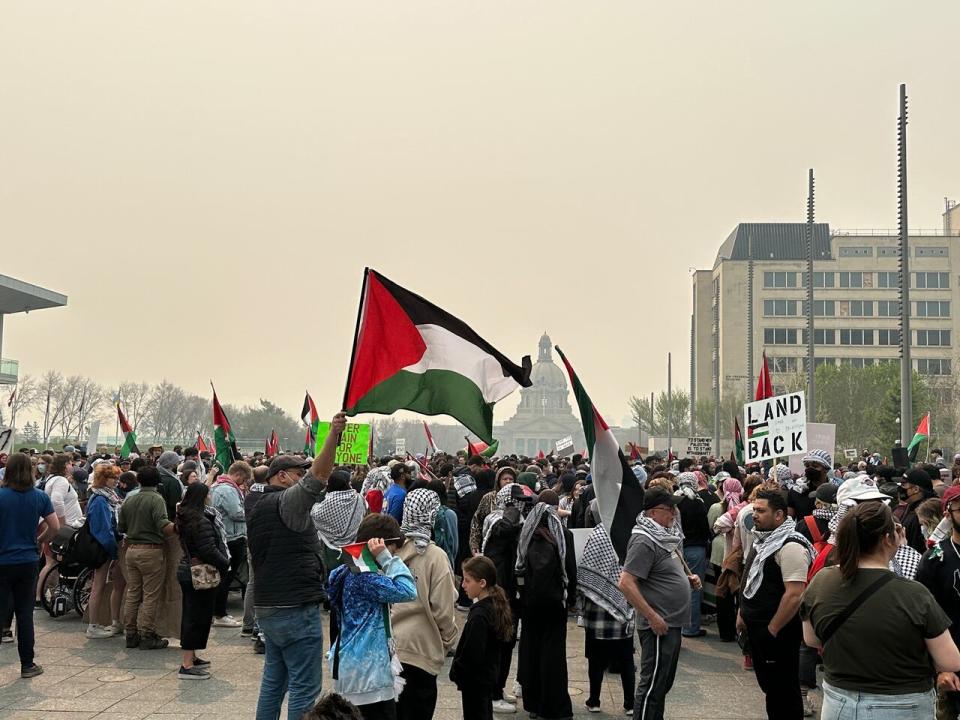Questions over Edmonton police removal of U of A encampment dominate police commission meeting

Local police were criticized by several members of the public during Thursday's Edmonton police commission meeting, for the actions officers took to clear a pro-Palestinian encampment at the University of Alberta on Saturday.
The commission, which aims to hold the Edmonton Police Service (EPS) accountable to citizens, unanimously approved an information request regarding EPS policies for managing protests and wearing name tags, in response to public concerns stemming from the encampment clearing.
The query seeks to better understand how police balance the duty to uphold law and order, while respecting individuals' right to protest. It also seeks answers about photos showing some officers on campus Saturday morning not wearing their name tags while wearing a chest guard — although some wore their regimental number.
"The purpose of my query really stems from [the commission's] governance role," said Irfan Chaudhry, one of the commissioners, who filed the query.
"Without visible ID, a risk exists that could erode trust — and that's something that is critical for governance around policing and public safety, to pursue those avenues."
READ | Approved police commission query request:
Chaudry's query asks for detailed information about the EPS' policy around name tags and whether regimental numbers are an "appropriate alternative," as well as guidelines for displaying such identification while wearing a chest guard.
His query also wants clarity about police policy and guidelines when it comes to managing protests and using force.
Edmonton police arrested three men during Saturday's sweep at the U of A. Videos taken by demonstrators, that were posted to social media, showed some officers using batons. EPS previously confirmed some officers used "special munitions" to deal with the men who were arrested.
Videos showed, at one point, a gas was released while police clashed with some protesters. EPS had denied that tear gas was used.
Police previously said no major injuries were reported, although demonstrators said four students were injured, including one who had to be sent to hospital.
The Alberta government plans to call on the Alberta Serious Incident Response Team (ASIRT) to investigate the U of A sweep, as well as an encampment clearing that occurred at the University of Calgary last week.
Police commission meetings are public and usually held in person, but Thursday's meeting was held virtually. A commission spokesperson told CBC News that hosting a lot of attendees could create "significant safety impacts" for the commission, its staff and the public.
Multiple citizens, including some who attended the U of A encampment, presented to the commission Thursday, calling into question the public messaging from the EPS and university about the encampment and its potential threat to public safety.
They also took issue with the force officers used on Saturday.
Commission chair John McDougall and Edmonton police Chief Dale McFee each addressed the U of A encampment at the outset of the meeting.
"We are precluded from becoming involved in operational policing matters, including what happened at the University of Alberta this weekend," McDougall said.
"We expect the Edmonton Police Service to conduct police operations in accordance with legislation and policy."
Police chief speaks
McFee is scheduled to speak with reporters Friday about the U of A encampment clearing.
At Thursday's meeting, McFee said the number of protests police have to manage is growing "exponentially," including more than 800 such events in the past 16 months.
"We protect free speech and we protect the very essential right of free expression, when both police and protesters respect their rights and responsibilities," he said during his statement, adding that demonstrators must obey the law and respect private property.
"Failure to do so, and deliberately attempt to bully, harass, dox — in other words, intimidate — the community, impacts the safety of our community and means the police response will come to adapt to the conditions on the ground."

Police Chief Dale McFee says Edmonton police are having to manage a greater number of protests. (Emily Fitzpatrick/CBC)
For protests focused on the Israel-Hamas war, police have been working with the community to ensure those demonstrations are "safe and facilitative," McFee said. But he is worried there is a growing push to make such protests more aggressive.


